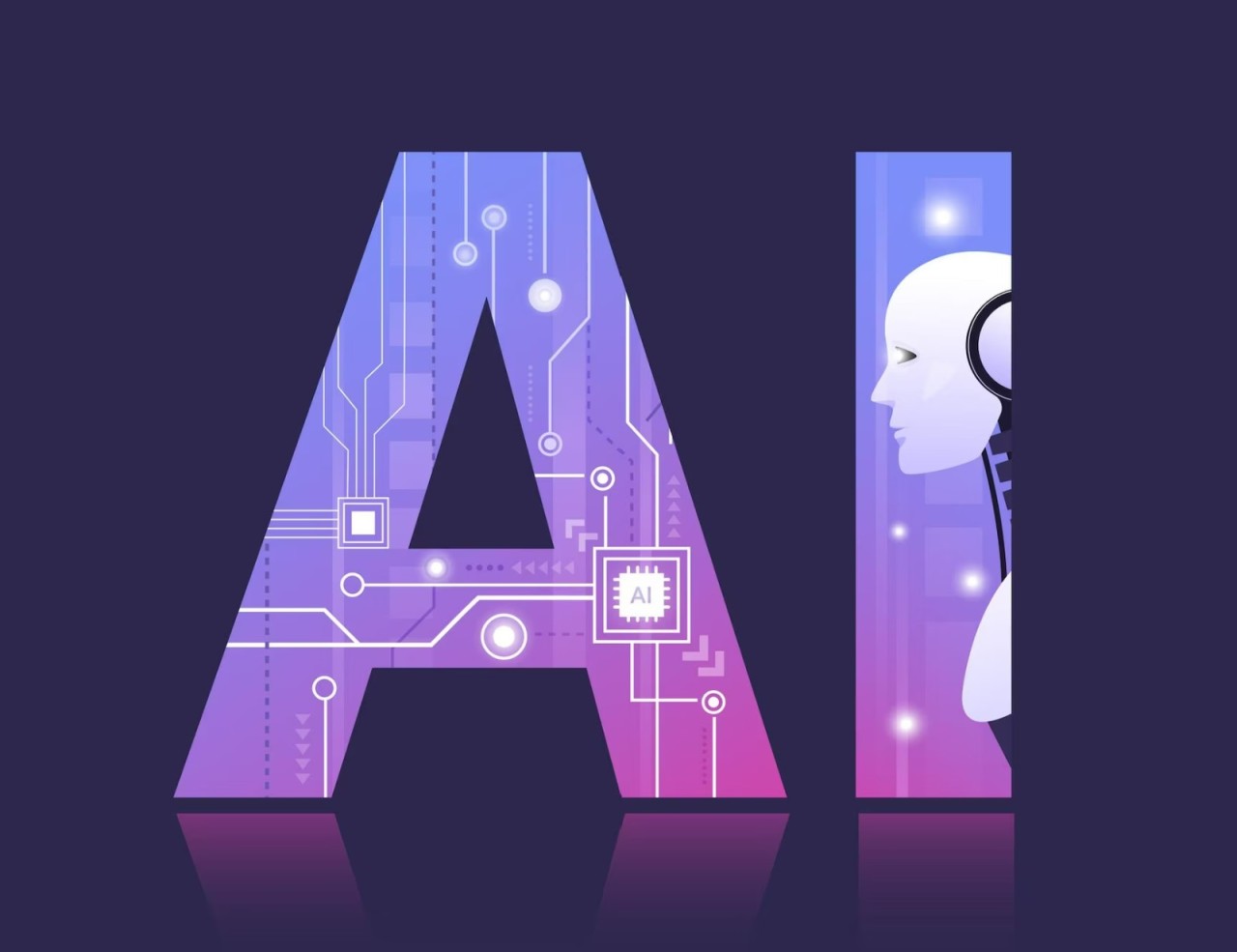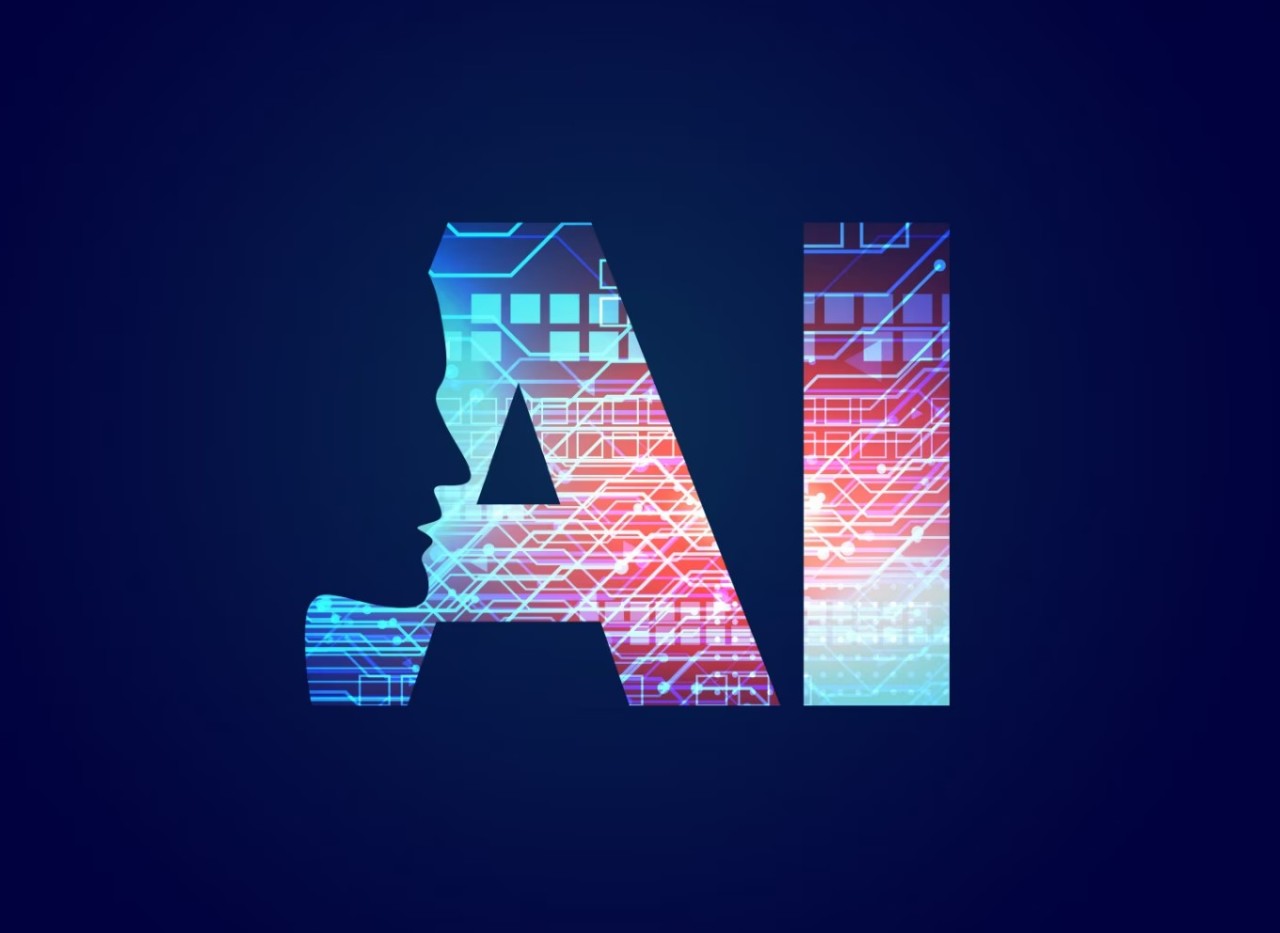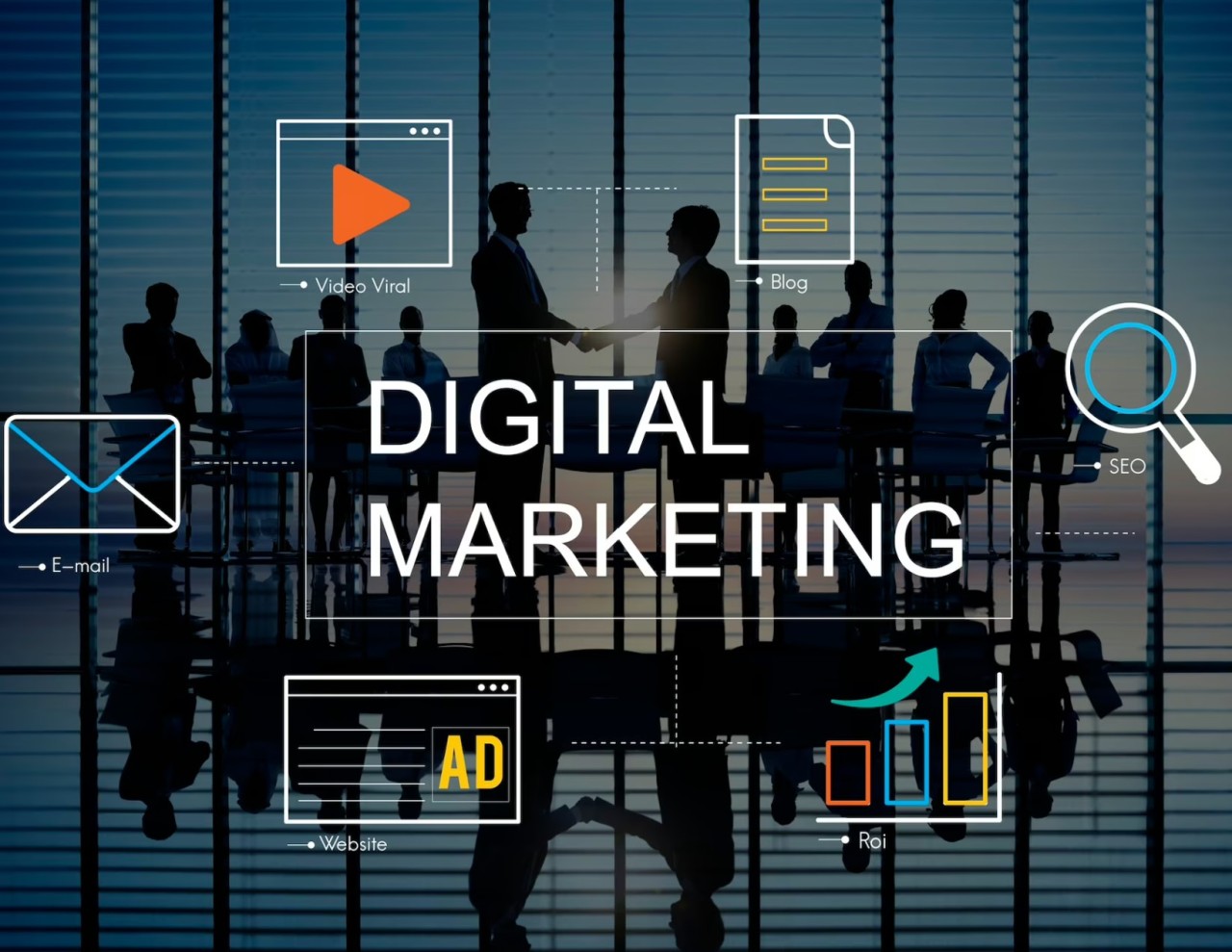Insight Blog
Agility’s perspectives on transforming the employee's experience throughout remote transformation using connected enterprise tools.
12 minutes reading time
(2443 words)
How AI is Transforming the Digital Marketing Industry in 2023
Digital marketing trends in 2023 include AI, personalization, chatbots, social shopping and much more. Let's read more on this topic.
Artificial intelligence (AI) is transforming and empowering companies to extract valuable insights from vast amounts of data, automate repetitive tasks, and create personalized experiences for their customers.
We are currently living in an era dominated by "big data," where the amount of information available for processing is too vast for humans to handle effectively, AI is having a massive impact in the worlld of business.
In various industries like technology, banking, marketing, and entertainment, the implementation of artificial intelligence (AI) has already proven to be highly valuable, not to mention digital marketing and project management and how AI is being intrgated into the project managemnent tools we use today.
Even if algorithms don't significantly improve, the combination of big data and powerful computing enables AI to learn through sheer computational power.
While there may be signs of Moore's Law slowing down, the exponential growth of data continues unabated.
Breakthroughs in computer science, mathematics, and neuroscience offer potential solutions to surpass the limitations imposed by Moore's Law, lets dig a bit deeper by defining what AI is?
What is artificial intelligence (AI)?
Artificial intelligence (AI) refers to the emulation of human intelligence in machines, particularly computer systems.
AI encompasses a range of applications, including expert systems, natural language processing, speech recognition, and machine vision.
These technologies enable computers to perform tasks that traditionally required human intelligence and decision-making.
The best way to think of Artificial intelligence (AI) is a field of computer science that focuses on the development of intelligent machines capable of performing tasks that typically require human intelligence.
AI involves creating computer systems and algorithms that can process information, learn from it, make decisions, and solve problems in a way that mimics human cognitive abilities.
It encompasses various subfields, including machine learning, natural language processing, computer vision, and robotics.
The goal of AI is to enable machines to perform complex tasks, automate processes, and provide solutions in a more efficient and intelligent manner.
Also read: How Can No-code AI Empower Businesses?
How does AI work?
With the growing hype surrounding AI, vendors have been eager to highlight how their products and services utilize this technology.
However, what is often referred to as AI is actually just one component, such as machine learning, within the broader AI field.
Implementing AI requires specialized hardware and software to develop and train machine learning algorithms. While there isn't a single programming language synonymous with AI, popular choices among AI developers include Python, R, Java, C++, and Julia.
In general, AI tools operate by ingesting large volumes of labeled training data, analyzing it for patterns and correlations, and leveraging these insights to make predictions about future outcomes.
For example, a chatbot trained on text examples can learn to generate realistic conversations,
while an image recognition tool can identify and describe objects in images based on millions of examples.
Advancements in generative AI techniques have enabled the creation of realistic text, images, music, and other media.
AI programming focuses on cognitive skills encompassing the following:
- Learning: This aspect revolves around acquiring data and devising algorithms that convert it into actionable information. Algorithms provide step-by-step instructions for computing devices to execute specific tasks.
- Reasoning: AI programming emphasizes selecting the most appropriate algorithm to achieve desired outcomes.
- Self-correction: AI programming incorporates mechanisms to continuously refine algorithms and ensure they produce the most accurate results possible.
- Creativity: This aspect of AI leverages neural networks, rules-based systems, statistical methods, and other techniques to generate novel images, text, music, and ideas.
By understanding these core aspects, developers can design AI systems that learn, reason, self-correct, and even exhibit creative capabilities, opening up new possibilities for solving complex problems and generating innovative outputs.
The Digital Marketing Industry: 8 Ways AI is Driving Transformation
In the realm of digital marketing, AI has the potential to streamline and optimize marketing campaigns while minimizing the possibility of human error. While human creativity remains vital in the digital marketing landscape, AI has the capability to generate insightful reports solely based on data. However, it is important to note that the human touch is still essential for genuine customer connection.
Empathy, compassion, and storytelling are qualities that machines are unable to replicate, at least for now. AI, being unrestricted by human limitations, holds immense possibilities for the future, especially if the advancements projected by Moore's Law continue to progress.
In the interim, let's explore some of the innovations that may have an impact on the industry as AI marketing becomes more prevalent.
1. AI-Powered Personalization
One of the key ways AI is transforming digital marketing is through personalized experiences.
By analyzing vast amounts of customer data, AI algorithms can identify individual preferences and behaviors, allowing businesses to tailor their marketing strategies accordingly.
AI-powered recommendation systems, like those used by Amazon and Netflix, suggest products or content based on users' past interactions, making their experience more enjoyable and relevant.
This level of personalization fosters customer loyalty and increases the likelihood of conversions.
2. AI-Driven Customer Targeting
Gone are the days of generic advertising that reaches a broad audience without precision. AI is taking digital marketing to a whole new level of accuracy by enabling businesses to target their ideal customers with remarkable precision.
This helps businesses optimize their ad spend, ensuring that their marketing efforts are directed towards the most receptive individuals.
3. Chatbots for Enhanced Customer Engagement
In today's fast-paced world, customers expect instant responses to their queries and concerns. This is where AI-powered chatbots come into play.
These intelligent virtual assistants can provide real-time support and answer common customer questions, freeing up human resources to focus on more complex tasks.
Chatbots can engage with customers 24/7, ensuring that no query goes unanswered and enhancing the overall customer experience.
Chatbots are not only serving B2C entities efficiently, but also the B2B sector. By using a chatbot in B2B marketing, you can facilitate quicker lead generation, nurturing, and support, which streamlines the workflow.
4. AI-Enabled Data Analysis
Data is the fuel that drives digital marketing strategies, and AI is the engine that can process and analyze vast amounts of data with speed and precision. AI algorithms can extract valuable insights from complex datasets, identifying patterns, trends, and correlations that humans might miss.
This enables businesses to make data-driven decisions, optimize their marketing campaigns, and refine their targeting strategies. With AI, marketers can unlock the power of data and gain a competitive edge in the digital landscape.
Incorporating AI tools into a construction company can significantly enhance targeting and engagement, leading to more effective campaigns and better ROI. To stay competitive, industrial leaders must develop a robust construction company marketing plan that leverages the latest digital marketing trends and AI technologies.
5. Optimizing Ad Campaigns
Digital advertising is a crucial component of any digital marketing strategy, and AI is transforming the way ads are created, delivered, and optimized.
AI-powered tools can analyze ad performance in real-time, adjusting bids, placements, and targeting parameters to maximize conversions and improve return on ad spend, Hyros and Redrack are prime examples.
Machine learning algorithms can learn from past campaign data and continuously optimize ad delivery to reach the right audience at the right time, boosting the effectiveness of advertising efforts.
6. Improved Content Creation
Creating compelling and engaging content is a cornerstone of successful digital marketing. AI is making its mark in content creation by automating certain tasks and providing valuable insights.
Natural Language Processing (NLP) algorithms can generate content based on predefined parameters, such as topic or style, saving time and effort for content creators.
AI tools can also analyze content performance, suggesting improvements and identifying content gaps, ensuring that businesses produce content that resonates with their target audience.
7. Predictive Analytics for Enhanced Decision-Making
AI's predictive capabilities are invaluable when it comes to making informed marketing decisions. By analyzing historical data, AI algorithms can predict future trends, customer behavior, and market demand.
This allows businesses to anticipate customer needs and adapt their strategies accordingly. Predictive analytics can also help in identifying potential risks and opportunities, enabling marketers to make proactive decisions and stay ahead of the competition.
8. Ethical Considerations
While AI presents numerous benefits to the digital marketing industry, it's important to address ethical considerations. Privacy concerns, transparency, and data security are critical aspects that need careful attention.
Businesses must ensure they adhere to ethical guidelines and regulations when collecting and utilizing customer data. Transparency in AI-driven processes and providing customers with control over their data are essential for building trust and maintaining strong customer relationships.
Transform Your Digital Marketing Journey with These 9 Powerful AI Tools
1. Chatbots - Conversations Made Smarter
Have you ever visited a website and been greeted by a friendly chat window offering instant assistance? Chances are, you were interacting with a chatbot! These intelligent virtual assistants are the frontliners of customer support and engagement.
With their ability to understand natural language and provide personalized responses, chatbots can enhance the user experience on your website and even guide visitors towards making a purchase. They work tirelessly 24/7, ensuring that your customers' queries are addressed promptly and accurately. So, say goodbye to long response times and hello to happy customers!
2. Social Media Management - Effortless Engagement
In the ever-expanding world of social media, managing multiple platforms can be a daunting task. That's where AI-powered social media management tools come to the rescue!
These tools analyze trends, monitor conversations, and schedule posts across various social media channels. They can even suggest the best times to publish content based on user engagement patterns.
With AI at your side, you'll never miss an opportunity to connect with your audience. So go ahead, schedule those tweets, craft engaging posts, and watch your social media presence soar to new heights!
3. Content Creation - Unleash Your Creativity
Creating compelling and engaging content is an essential aspect of digital marketing. However, it can be time-consuming and challenging to consistently come up with fresh ideas. Enter AI-powered content creation tools! These tools can generate ai voice, blog posts, social media captions, AI images and even video scripts in a matter of seconds.
With AI as your content partner, you can unleash your creativity and deliver captivating content that resonates with your audience.
5. Personalization - Tailoring Experiences for Each Customer
In the age of information overload, personalization is key to capturing and retaining your customers' attention. AI-powered personalization tools can analyze user data, preferences, and behavior to deliver highly targeted experiences.
Whether it's personalized email campaigns, website experiences, or product recommendations, AI enables you to create meaningful connections with your audience and make each customer feel valued.
6. SEO Optimization - Climbing the Search Rankings
Search Engine Optimization (SEO) is vital for driving organic traffic to your website. AI tools can take your SEO efforts to the next level by analyzing keyword trends, suggesting optimized content, and even conducting competitor research. Using these AI advancements like an AI link insertion tool, you can further enhance your SEO strategy.
These tools can help you identify gaps in your SEO strategy, optimize on-page elements, and improve your website's visibility in search engine results.
With AI guiding your SEO journey, you'll be climbing the search rankings and attracting more organic traffic in no time!
7. Email Marketing - Smarter Campaigns, Higher Conversions
Email marketing remains a powerful tool in the digital marketer's arsenal. AI-powered email marketing tools can revolutionize the way you engage with your subscribers. These tools analyze data, segment your audience, and automate personalized email campaigns.
They can optimize subject lines, recommend the best time to send emails, and even predict customer behavior to deliver hyper-relevant content.
With AI-driven email marketing, you can create targeted campaigns that resonate with your audience, resulting in higher open rates, click-through rates, and conversions.
8. Visual Content Creation - Eye-Catching Designs Made Easy
Visual content is increasingly crucial in capturing attention and conveying messages effectively. AI tools can simplify the process of creating eye-catching designs and visuals.
From generating logos and graphics to enhancing images and videos, these tools offer a plethora of features that help you create visually stunning content. With AI-assisted design, you don't need to be a professional graphic designer to produce captivating visuals that reflect your brand's personality and attract your audience's attention.
It sounds too good to be true, but as soon as you sign up and generate images with AI using a cutting edge tool for the first time, you'll understand the true scope of the potential it represents in this sphere. It's a conduit for unfettered creativity like no other.
9. Predictive Analytics - Anticipating Customer Needs
Wouldn't it be amazing if you could predict your customers' needs even before they realize them? Well, AI-powered predictive analytics tools make that possible!
Armed with this information, you can proactively tailor your marketing strategies, develop targeted campaigns, and offer personalized experiences that delight your customers. With predictive analytics, you'll stay one step ahead, delivering exactly what your audience desires.
10. Voice Assistants - Conversations with AI
Voice assistants like Siri, Alexa, and Google Assistant have become an integral part of our daily lives. In the realm of digital marketing, these AI-powered voice assistants offer exciting possibilities.
Voice assistants can also provide personalized recommendations, answer customer queries, and even facilitate voice-based transactions. So, get ready to have conversations with AI and unlock the potential of voice-enabled marketing.
Wrapping up
Congratulations! You've just been introduced to the top 9 AI tools that can transform your digital marketing journey.
From chatbots and social media management to content creation and predictive analytics, these tools offer unparalleled capabilities to streamline your processes, enhance customer experiences, and drive remarkable results.
Embracing the power of AI in your digital marketing strategy will enable you to stay ahead of the competition, create meaningful connections with your audience, and achieve your marketing goals with ease.
Remember, while AI tools provide incredible automation and insights, they are most effective when used in conjunction with your creativity, strategic thinking, and understanding of your target audience.
So, go ahead and explore these AI-powered tools, experiment with different approaches, and uncover the perfect blend of human ingenuity and artificial intelligence to unlock the full potential of your digital marketing efforts. Happy marketing!
Categories
Blog
(2751)
Business Management
(338)
Employee Engagement
(214)
Digital Transformation
(186)
Growth
(124)
Intranets
(123)
Remote Work
(61)
Sales
(48)
Collaboration
(44)
Culture
(29)
Project management
(29)
Customer Experience
(26)
Knowledge Management
(22)
Leadership
(20)
Comparisons
(8)
News
(1)
Ready to learn more? 👍
One platform to optimize, manage and track all of your teams. Your new digital workplace is a click away. 🚀
Free for 14 days, no credit card required.











![How to Scrape LinkedIn: Step-by-Step Guide! [2026] How to Scrape LinkedIn: Step-by-Step Guide! [2026]](http://agilityportal.io/images/easyblog_articles/1324/b2ap3_thumbnail_How-to-Scrape-LinkedIn.jpg)


